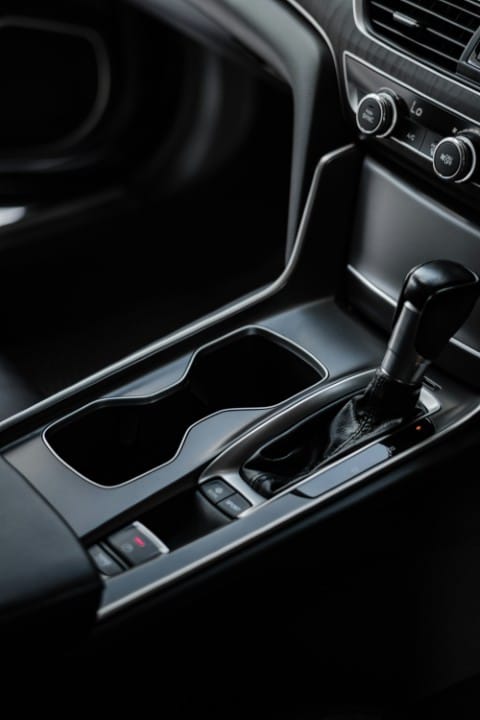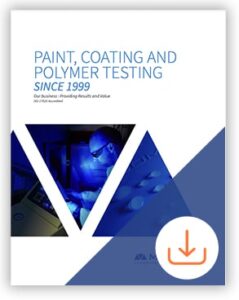ASTM D1876
Testing Method to Determine the Peel Resistance of Adhesives Between Flexible Adherends
Micom Laboratories offers ASTM D1876 testing (T-Peel Testing) services as part of its adhesive and polymer testing services. This method is essential for evaluating adhesive performance by measuring the peel strength of bonded joints. As a manufacturer in Canada or the U.S., you can count on us to evaluate the performance of your adhesives under specific conditions, providing you with accurate, reliable results that will enable you to make informed decisions.
About ASTM D1876 Testing
The ASTM D1876 standard, known as the T-Peel test, evaluates the peel strength of adhesives in bonded joints. This test measures the force required to separate two flexible substrates, providing insights into the adhesive’s ability to withstand stress. It gets its name from the “T” shape formed when the substrates are bonded at one end and pulled apart, mimicking the letter “T.”
Peel strength testing is a key quality assurance component. This method can be applied to various substrates, including metals, plastics, and composites, allowing for comprehensive evaluations of adhesive bonds across different material combinations.
Benefits of Our ASTM D1876 Testing Services
- Quality control and assurance: Ensure consistent adhesive performance by verifying peel strength. Help identify defects or inconsistencies in adhesive formulations.
- Product development and improvement: Provide data to optimize adhesive formulations for specific applications. Facilitate the development of innovative bonding solutions.
- Compliance with industry standards: Demonstrate adherence to recognized testing protocols, enhancing credibility. Support regulatory compliance in various industries.
- Performance validation: Confirm that adhesives meet required performance criteria under specified conditions. Provides essential data for product reliability and customer confidence.

ASTM D1876 Testing for the Automotive Industry & More
ASTM D1876 testing is indispensable in the automotive industry. For example, it is used to evaluate adhesives for bonding components like dashboards and interior trim, ensuring they meet the necessary strength requirements for durability and safety. By identifying the most suitable adhesives for specific automotive applications, Micom Laboratories helps ensure optimal performance and long-lasting reliability.
Other industries that benefit from our ASTM D1876 testing services include:
- Construction: We ensure the durability of roofing adhesives in the face of environmental stresses.
- Aerospace: We test aerospace component adhesives for resistance to extreme conditions and stresses.
- Packaging: We measure the peel resistance of labels to ensure they remain intact during handling and shipping.
- Electronics: We assess the reliability of adhesive bonds in electronic devices under operational conditions.
ASTM D1876 Testing Process
The ASTM D1876 test procedure, commonly known as the “T-Peel Test,” evaluates the peeling strength of adhesives. The process performed by the experts at Micom involves the following steps:
- Sample Preparation: A single plate that is 305 mm long is prepared and bonded along a portion of its length using the adhesive to be tested. The plate is made wide enough to be cut into at least 10 samples, each measuring 25 mm wide, once the adhesive has cured.
- Bending the Unbonded Ends: The unbonded ends of the samples are bent apart perpendicular to the glue line to facilitate their insertion into the tension testing machine.
- Conditioning: The prepared samples are conditioned at the specified test temperature and humidity level for 7 days unless otherwise indicated by the adhesive manufacturer.
- Testing Setup: The bent ends of the samples are mounted in the tension testing machine so that a peeling force is applied at a 90-degree angle.
- Testing Environment: The testing is conducted under controlled environmental conditions, ensuring consistent temperature and humidity. A constant head speed is maintained to ensure uniform peeling force application.
Micom’s scope is not limited to this peel testing; more complex sample assemblies, such as sandwich constructions with a honeycomb core bonded between two plates, can also be tested using the ASTM D1781 method.
Why Choose Our Testing Laboratory?
As an ISO/IEC 17025 accredited testing laboratory, Micom Laboratories offers high-quality adhesive testing services tailored to diverse industry needs. We prioritize timely results, providing quick turnaround times to facilitate informed decisions without unnecessary delays. Our competitive pricing ensures exceptional value without compromising the reliability and accuracy of our results. Utilizing state-of-the-art equipment and rigorous testing protocols, you can have confidence in the integrity of our results.
Our Services
Micom Laboratories provides a comprehensive suite of ASTM D1876 testing services tailored to meet your needs, including:
- Standard Testing: We conduct tests in strict compliance with ASTM D1876 specifications to ensure reliability and accuracy.
- Custom Testing: Our team can develop modified test protocols designed to address your unique requirements and specific applications.
- Environmental Testing: We can evaluate adhesive performance under various temperature and humidity conditions.
- Comparative Studies: We can assess multiple adhesives or surface treatments to determine optimal solutions.
- Failure Analysis: We investigate bond failures and provide recommendations for improvement.
Our Testing Capabilities
Our state-of-the-art laboratory is equipped with advanced testing equipment operated by a team of experienced professionals:
- A2LA accredited material testing facility ensuring the highest standards of testing
- Cutting-edge tensile testing machines for accurate force measurement
- Environmental chambers for testing under various temperature and humidity conditions
- Precision sample preparation equipment for consistent specimen quality
- Advanced data acquisition and analysis software for reliable results
Complementary Testing under Polymer Testing
In addition to our ASTM D1876 testing services, Micom offers a wide range of other tests to assess the mechanical strength of adhesives, such as ASTM D1781, which evaluates the peel resistance of adhesive bonds between flexible and rigid adherends using the climbing drum peel method, and ASTM D1002, which determines the apparent shear strength of single-lap-joint adhesively bonded metal specimens under tension loading.
We also provide many other material testing services for polymers, including UV testing and accelerated aging. Download our Polymer brochure or visit our material testing services page to learn more.
Frequently Asked Questions
What is ASTM D1876 testing and why is it important?
ASTM D1876, also known as the T-Peel test, evaluates the peel strength of adhesives between flexible substrates. It is crucial for assessing adhesive performance in various industries, particularly automotive and aerospace, where the durability and reliability of bonded joints are essential for safety and functionality.
What types of materials can be tested using ASTM D1876?
ASTM D1876 testing can be applied to a wide range of materials, including metals, plastics, and composites. This versatility allows manufacturers to assess adhesive performance across various substrate combinations, making it an essential tool for quality assurance in diverse applications.
Can Micom customize ASTM D1876 testing for specific applications?
Yes, Micom Laboratories offers custom testing services tailored to meet unique client requirements. Our team can develop modified test protocols and conduct environmental testing to evaluate adhesive performance under various conditions.


